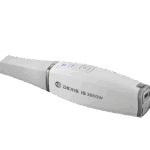Summary: AI is revolutionizing orthodontics by streamlining tasks like diagnosis, scheduling, and treatment planning, but it raises significant concerns about patient data security and HIPAA compliance. As orthodontists integrate AI into their practices, they must prioritize robust data protection measures to safeguard sensitive health information.
Key Takeaways:
- AI can significantly improve efficiency in orthodontic practices by automating routine tasks.
- Patient data protection, especially HIPAA compliance, is a critical concern when implementing AI technologies.
- Practices must choose AI providers with strong cybersecurity standards, including encryption, access controls, and regular audits.
By Gary Salman
Technological advancements are reshaping every industry, and orthodontists have the potential to transform practices and improve efficiency with AI. From streamlining diagnosis and treatment planning, to automating patient scheduling and communications, and providing enhanced data analytics—AI promises to help many practices struggling with staffing limitations focus on optimizing operations. However, as practices explore these possibilities, they must also confront challenges such as HIPAA compliance, data protection, and security risks. What should be considered when harnessing the power of AI to ensure patient data is safeguarded?
Unleashing Efficiency through AI
AI tools have the power to make orthodontic practices more efficient. Imagine instant, accurate diagnoses with AI-enabled imaging tools, or treatment plans personalized with the assistance of machine learning algorithms. By handling routine tasks such as patient communications, scheduling, and billing automatically, AI frees up precious time for orthodontists and their staff to focus on what they do best—providing exceptional care to patients. However, practices must be hyper-aware of how all patient data is handled and stored by these technologies to reduce the potential of a third-party data breach.
Ensuring Compliance and Security
Patient data is sacred, and the potential for breaches—especially when working with third-party providers—poses a significant risk. For any healthcare professional, the integration of AI requires rigorous attention to HIPAA compliance and data protection. With AI systems handling an immense amount of protected health information (PHI), the responsibility to keep this data safe not only rests on the shoulders of orthodontists but also extends to the solution providers and their commitment to security.
It’s vital to select AI solutions from providers who are dedicated to cybersecurity excellence. This involves ensuring robust encryption standards, conducting regular security audits, and having a comprehensive incident response plan in the event of a cyber event.
Protecting Patient Records and Ensuring HIPAA Compliance
Implementing AI technologies within practices warrants some additional questions to ask during the selection process. Compliance with HIPAA regulations, which dictate the secure handling of patient information, is essential. Here are items to consider when assessing any AI tool:
- Data Storage and Flow: Data storage is a crucial aspect orthodontists must consider when integrating AI. Knowing precisely where data is stored by these AI solutions and who has access to it is vital for maintaining control and security. It’s also vital to encrypt patient data both in storage and transmission to prevent unauthorized access. Given that AI often necessitates data analysis across multiple platforms, this crucial step ensures that intercepted data remains indecipherable. The expansive digital footprint created by AI can increase risk, with data potentially stored across several server networks simultaneously.
- Data Access Controls: Establishing stringent access controls is paramount to ensure that only authorized personnel can reach sensitive information. Implementing multi-factor authentication offers an additional security layer when it can be enabled. It’s important to verify the AI providers’ policies regarding data sharing and retention, as patient data might inadvertently be shared or retained without explicit consent.
- Regular Internal and External Audits: Conducting routine security audits is essential for identifying vulnerabilities and verifying conformity with HIPAA standards. While internal audits help uphold data protection methods, acknowledging third-party risks is equally significant. Some AI companies, still evolving from a start-up phase, might mask limited security measures behind a “HIPAA Compliant” facade, thereby posing a significant risk during breaches.
Remember, a commitment to cybersecurity is not just a technical requirement—it’s an essential component of patient care and practice integrity. By selecting partners who take cybersecurity seriously, orthodontic practices can confidently integrate AI, knowing that their technology solutions are safe and secure, ultimately facilitating a more seamless and protected patient experience. OP
Gary Salman is CEO and co-founder of Black Talon Security. A leader in the cybersecurity field, Gary has a 25+ year background in law enforcement and healthcare technology. His firm monitors and secures approximately 50k computers and networks worldwide and has trained tens of thousands of dental and other healthcare professionals.











